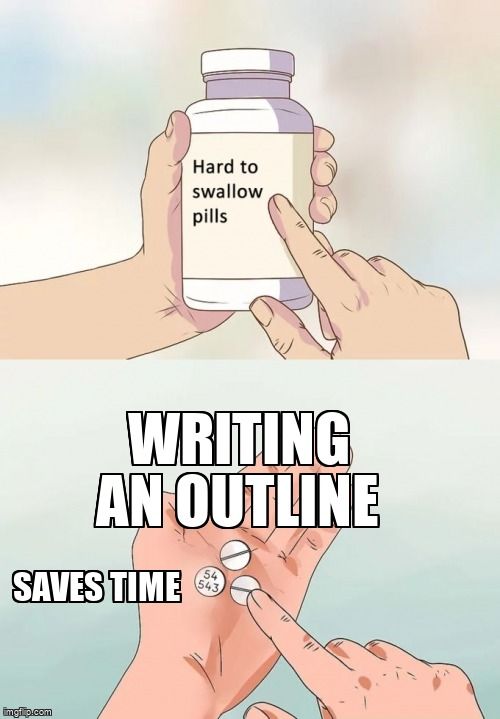
This logo isn't an ad or affiliate link. It's an organization that shares in our mission, and empowered the authors to share their insights in Byte form.
Rumie vets Bytes for compliance with our
Standards.
The organization is responsible for the completeness and reliability of the content.
Learn more
about how Rumie works with partners.
When was the last time you broke down a piece of work (e.g. text, film) and provided evidence for your argument in an essay?

Writing an analytical essay doesn't have to be hard. Use these tips to help get you started on writing an effective analytical essay!
Did you know?
What is an Analytical Essay? 🤔
In an analytical essay, you dissect a concept, character, or elements behind a piece of work and present a claim (your thesis statement) about it.

This type of essay is typically written in literature or art classes, where you have to examine a theme and analyze why or how they contribute to a piece of work.
1. Draft a Topic 🧐
Unless you've already been assigned one, drafting a topic is the first step in your essay-writing process.

Your topic should:
Be something you find interesting and have a unique approach to ✔️
Be specific enough that you can cover it in a single essay ✔️
Have enough available research to support your argument ✔️
Draw the attention of your audience ✔️
2. Do Research and Take Notes 📚
Research helps you get a better understanding of the topic you’ve chosen and gives you the information you need to write your thesis statement.

You may have already formed a thesis statement for your analytical essay before this process, but it’s perfectly fine to form one as you go or choose an entirely new one!
Here are some ideas on how to approach the research process:

Gather and organize your research into an outline or mind map

Keep track of important source details (title, author, URL, page no., time stamps, etc.) to create your reference/citation list at the end of your essay
3. Use Questions for Analysis ❓
Using prompts and questions provides a great starting point for analyzing the work you've chosen.

Consider these questions when writing your analysis:
What was the overall purpose or message behind the work? 💡
What was the context of the work and how was it essential to the story? 💡
What ideas, imagery, phrases, etc. are repeated to emphasize the work's theme? 💡
Why do the characters act the way they do and what does this say about them? 💡
4. Formulate a Thesis Statement ✍️
A thesis statement, often 1-2 sentences, contains the main topic and argument you want to cover in the analytical essay. All the points you make in the essay should tie back to your thesis.

Your thesis statement should look like this:

Bong Joon Ho's Parasite uses stairs as a metaphor to symbolize its overarching theme of social stratification and class inequality.
Narrowed down enough ✔️
Arguable, not just a statement of fact ✔️
But it shouldn't look like this:

Bong Joon Ho's Parasite has a theme of class inequality.
Too vague ❌
Doesn't leave room for "arguing" ❌
5. Create an Outline 📝
Developing an outlineis a useful way to organize your thoughts, finalize the structure of your essay, and reduce your writing time.

Check out this example of an analytical essay outline below:
⭐ Introduction
Hook
Background information
Thesis statement
⭐ Body (x3)
Topic sentence
Supporting evidence for your analysis
Connection to the thesis statement
Transition to the next paragraph
⭐ Conclusion
Summary of points
Restatement of thesis
Quiz: Check Your Understanding 👍

Janine is a high school student who has been assigned to write an analytical essay for her film class. She drafts the topic: "Characteristics of heroes in 21st-century movies."
Upon hearing about the topic, Janine's teacher, Mr. Cho, suggests that she tweaks it a bit.
Why does Mr. Cho say this?
A. He thinks here are other topics worth analyzing.
B. He thinks there aren't enough research materials to support her essay.
C. He doesn't think Janine is capable of writing about this topic.
D. He thinks that the topic is too broad to analyze in a single essay.
Quiz
Pick the best explanation for Mr. Cho's suggestion:
Considering the sheer number of hero-centric films released in 21st-century movies, it would be difficult for Janine to cover the whole topic and pin down just a few common characteristics. Instead, Janine can further specify her topic by focusing on a film, series, or characters. For example, she can write about the “Characteristics of female heroes in the Marvel Cinematic Universe.”
Take Action

Keep these tips in mind as you prepare to write an analytical essay!
This Byte has been authored by
Eunso Im
College Student



